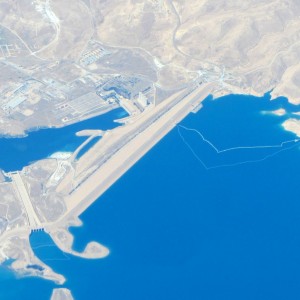The Stream, February 1: United Arab Emirates Modifies Weather to Make Rain
The Global Rundown
Pinched by shrinking groundwater reserves, the United Arab Emirates is pursuing research projects to modify weather passing over the country to create as much rainfall as possible. Farmers in South Africa are drilling wells hundreds of meters deep to reach water, and Japan is building the world’s largest floating solar farm. Detroit is considering a plan to make its water more affordable for residents, an international contest is seeking new ideas to finance urban water fixes, and six officials involved in a West Virginia chemical spill will be sentenced this month.
“There are many techniques to secure water resources. But only precipitation enhancement can produce a lot of water for industrial use, irrigation etc. cheaply.” –Masataka Murakami, a researcher at Japan’s Nagoya University, on efforts in the United Araba Emirates to use weather modification techniques to increase rainfall. Groundwater supplies are increasingly stressed in the country. (Guardian)
By The Numbers
500 meters Depth beyond which some farmers in South Africa are now having to drill wells to find water amid a severe drought. Times Live
$1.8 million Prize money to be awarded to the winner of the Dreampipe contest, which seeks innovative ideas about how to finance fixes for leaky urban water infrastructure. Reuters
Science, Studies, And Reports
Detroit is considering a plan to introduce tiered pricing for the city’s water system, reducing rates for customers who conserve water. The plan will be presented today in a report by the city’s Blue Ribbon Panel on Affordability. Michigan Radio
On The Radar
Six officials involved with a 2014 chemical spill into West Virginia’s Elk River, which shut down water supplies for the capital city of Charleston, will be sentenced this month on criminal charges. The officials face between one and three years in prison, as well as thousands of dollars in fines. Associated Press
Construction is beginning on a floating solar plant in a reservoir near Tokyo, Japan. The plant is expected to be the world’s largest floating solar farm, capable of supplying electricity to 5,000 homes. Yale Environment 360
A news correspondent for Circle of Blue based out of Hawaii. She writes The Stream, Circle of Blue’s daily digest of international water news trends. Her interests include food security, ecology and the Great Lakes.
Contact Codi Kozacek







Leave a Reply
Want to join the discussion?Feel free to contribute!